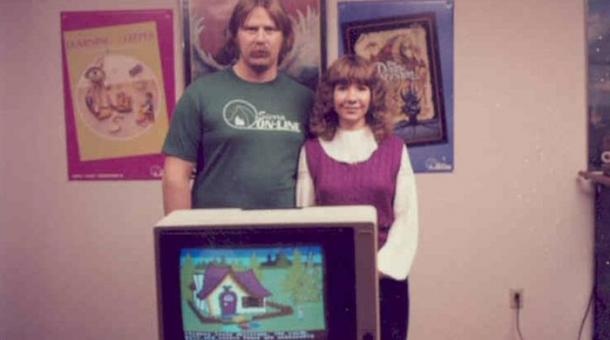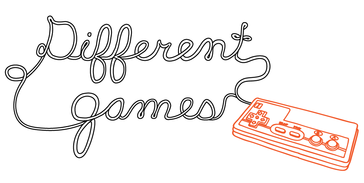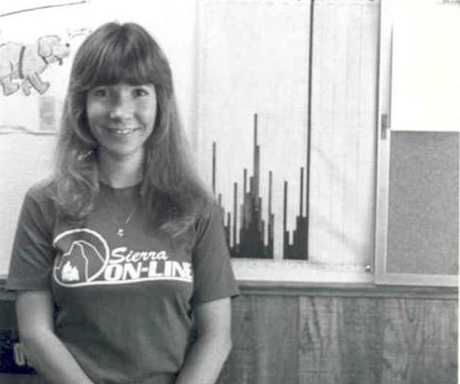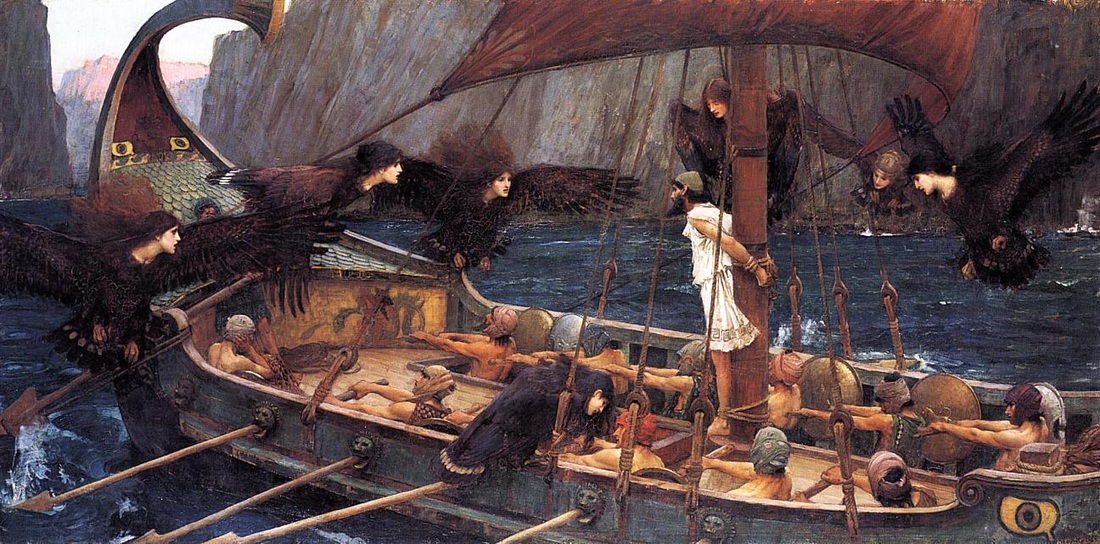|
Very recently, a professor from years past posted an article link on my Facebook wall and asked me whether or not I agree with the argument being the made. The piece in question was Liel Leibovitz's "MoMA Has Mistaken Video Games for Art." You can read it here.
I won't summarize the entire argument, as you can read it for yourself, but the crux of Leibovitz's argument is that games are not art because they are code. As Leibovitz puts it, "[...] a few lines of code aren’t an artistic statement, but rather an action-oriented script that performs a specific set of functions. And there are only so many functions computers know how to do: While art is bound only by its creator’s imagination, code is bound by the limitations, more numerous than you’d imagine, of computer comprehension." Let me be frank: I am a person who doesn't care at all about whether video games are "truly" art. I might be interested in games as an aesthetic experience, but "Art" as deployed in these sorts of debates is always about trying to erect some sort of taste-based bastion around certain types of things. I find that in almost all cases, "debates" around this question are always about something else: anxieties about changing technological and aesthetic landscapes; the desire for one's hobby/obsession/fetish to be taken "seriously"; an effort to acquire funding for one's aesthetic exploits, etc. The specter of art seems to be raised with little attention to the fact that art is not a freely floating transcendental signifier bestowed by god upon appropriately sincere, lovely or serious objects. And this is the same sort of looseness I see in Leibovitz's essay. So, as copied almost directly from my Facebook rant, this is my response to both Leibovitz's essay and the nay-sayers of this debate more generally:
The past two weeks have been a bit dizzying--full of excitement and possibility and adventure within and beyond the walls of the academy. Here's some recap, and preview of up-coming stuff I'm involved in. SCMS: Society for Cinema and Media StudiesThis year's Chicago conference was a time of great connection and re-connection. The media archaeology panel was a pure success; I've been encouraged to flush out my feminist critique of media archaeology and pursue publication. As a grad student, this was feedback I very much needed--I operate in a department largely unaware of the emergent trends in media studies, and my engagement with the field outstrips that of my advisor. Demoing this work for folks who are "stakeholders" in this conversation, and having them socially "sign off" on the project was just the POV I needed to confidently move forward with what I deeply, naggingly know is work I have to do. Other academic highlights included the "Debugging Terminology in Video Game History," which previewed some of the great work forthcoming from Henry Lowood and Raiford Guin's co-edited Game History Lexicon, the Platform Studies Roundtable (do we have any agreement on what "platform studies" means? absolutely not), and the Digital Networks panel, which included Patrick Jagoda's breathtaking presentation on network aesthetics. As the Sounding Out! blog reported, the terrain of the conference is shifting; new domains in media studies--sound studies, materialist media studies, videogame studies--are capsizing the long-standing primacy of film (and even television) at this conference. Many of the young scholars I spoke with--ABD grads and jr. faculty--are curious to see if SCMS will be able to hem these increasingly divergent interests together, or if there may be some need for media studies to strike out on its own. Where IS the big-league media studies conference that isn't a tack-on to some other discipline? (as we experience at SCMS, 4H, MLA, ACLA, ICA, etc.) Marketplace TechReport InterviewWhile at SCMS, my Marketplace Techreport interview aired on NPR! It was an aweing experience to meet the famed and insightful David Brancaccio in this context. David has been carrying a beat on "Who is Tech?" and paying special attention to the issues around sexism in the game industry. My report was, in part, to provide alternative histories that can help us be more thoughtful about how we frame these debates today. Different GamesDifferent Games is fast approaching! This conference is the first of its type organized around issues of difference, diversity and intersectionality in game design, game scholarship and game criticism. The conference was created by Sarah Schoemann of NYU-PolyTech, and is co-organized by myself and Sarah (with the assistance and input of many!). Different Games will be hosted by the Technology, Culture and Society Department at Poly, April 26-27. We'll have tracks of academic papers, design presentations, a game arcade, workshops, and breakouts. Our keynotes are Mary Flanagan and Celia Pearce, and the event will also include presentations by Anna Anthropy, Mattie Brice, Adrienne Shaw, Raiford Guins, Nick Fortugno, and lots of other ballers, big and small. The schedule is still pending, but should be out soon. This conference could not have been better timed to be in sync with current events in the game industry. Personal Best @ NYU Game CenterAs part of an effort to build excitement about Different Games, and also bring attention to feminist issues in game scholarship, Sarah Schoemann (TCS, PolyTech) and Toni Pizza (NYU, Game Center) have been working together on a lecture series called Personal Best: A Series on Feminist Game Design Practices. Personal Best first featured Jessica Hammer, speaking on designing games for Ethopian teenage girls. I'll be the second figure in Personal Best, speaking on Roberta Williams (surprise!). There will be new content here, compared to my Provost Talk--including info on the larger West Coast game industry Sierra was a part of, and a more theoretical examination of why women's play has been left out of early game history. Full verbage below; Facebook invite here. Talk Title: Before We Were "Gamers": Roberta Williams, Sierra On-Line and How We Write Women into Video Game History
Personal Best is excited to welcome our second speaker, Laine Nooney whose lecture will cover some of the founding hits of Roberta Williams' game design career and offer insight on how Williams' understood her own design practice, put in the context of Sierra On-Line as an important company of the 1980s home computer software boom. Furthermore, the contributions of Williams will be framed within the larger context of video game history, and focus on how women like Roberta Williams aren't simply "additions" to a historically male gaming narrative but could actually challenge what we understand the history of games to be. This week hundreds of film and media scholars will descend upon Chicago for the 2013 Annual Meeting of The Society for Cinema and Media Studies. This is my second year in attendance, and I'm especially looking forward to this year's conference. I've organized a panel on media archaeology, and I'll be giving my talk on feminist materialism, Roberta Williams' Mystery House, and an approach to materialist method I delinquently term "media gynaecology." I can't speak highly enough of the folks participating on the panel, and I think we're going to engage a valuable--and necessary--conversation on methodology within media archaeology. Below is the information on our talks, and the longer panel abstract.
Panel Title: New/Media/Archaeologies: Extensions and Interventions in Media Archaeology Panel Number: F11 Chair: Laine Nooney | Stony Brook University Rory Solomon | Parsons the New School for Design “Software Stratigraphy: Media Archaeology of/as the Stack” Shannon Mattern | The New School “Echoes and Entanglements: A Sonic Archaeology of the City” Laine Nooney | Stony Brook University “Materialist Methods for Mystery House(s): A Feminist Media Archaeology of Early Video Games” Jacob Gaboury | New York University “An Archeology of Uncomputable Numbers: Queer Media History” Panel Abstract: Over the past 20 years, media archaeology's emphasis on non-progressive media histories, dead and failed media, and media materialism has refreshed the theoretical domains of media studies. Scholarship in media archaeology has long been united by a methodological focus on the primacy of the technological medium itself, rather than its representational content. However, these methods, by outrightly rejecting questions of discursivity, subjectivity and political economy, produce their own academic difficulties. The anti-hermeneutic tradition of media archaeology has produced a body of scholarship that often leaves unaccounted the ghostly or immaterial components of media studies that do not leave technological registers in our material world. This panel re-assesses the intersections of objects, subjectivities and environments that typically lie beyond media archaeology's reach, extending media archaeological methods across disciplinary boundaries. Rory Solomon offers a programmer-oriented view, complicating the notion of a purely non-discursive technical substrate using the software model of the “stack.” The “stack” illustrates that operative layers always exist above and below any substrate; methods are best imagined as “both/and” rather than “either/or.” Shannon Mattern productively confuses the distinction between media archaeology and archaeology “proper,” in an effort to address the very literal “digging” required to write a history of urban sound. Mattern insists media archaeology should learn from actual excavation, as material practices are all the more significant when one must unearth forms of mediation that themselves have no physical instantiation. Laine Nooney continues to focus on material context, arguing that media archaeology remains deeply gendered when scholars privilege objective analyses of media objects that forgo cultural and human materiality. Nooney intersects feminist materialism with media archaeology to highlight the largely “invisible” female affective and material labor at work in video game history. Jacob Gaboury locates a queerness in media archaeology demanding further attention to identity-based critiques. Gaboury suggests that media archaeology's attention to failed, glitched and re-occurring processes dovetails with queer theory's turn toward a politics of failure and anti-sociality, and reads computer history against its grain to offer a queer alternative to the telos of “successful” communication. |
Archives
March 2020
Categories
All
|




 RSS Feed
RSS Feed